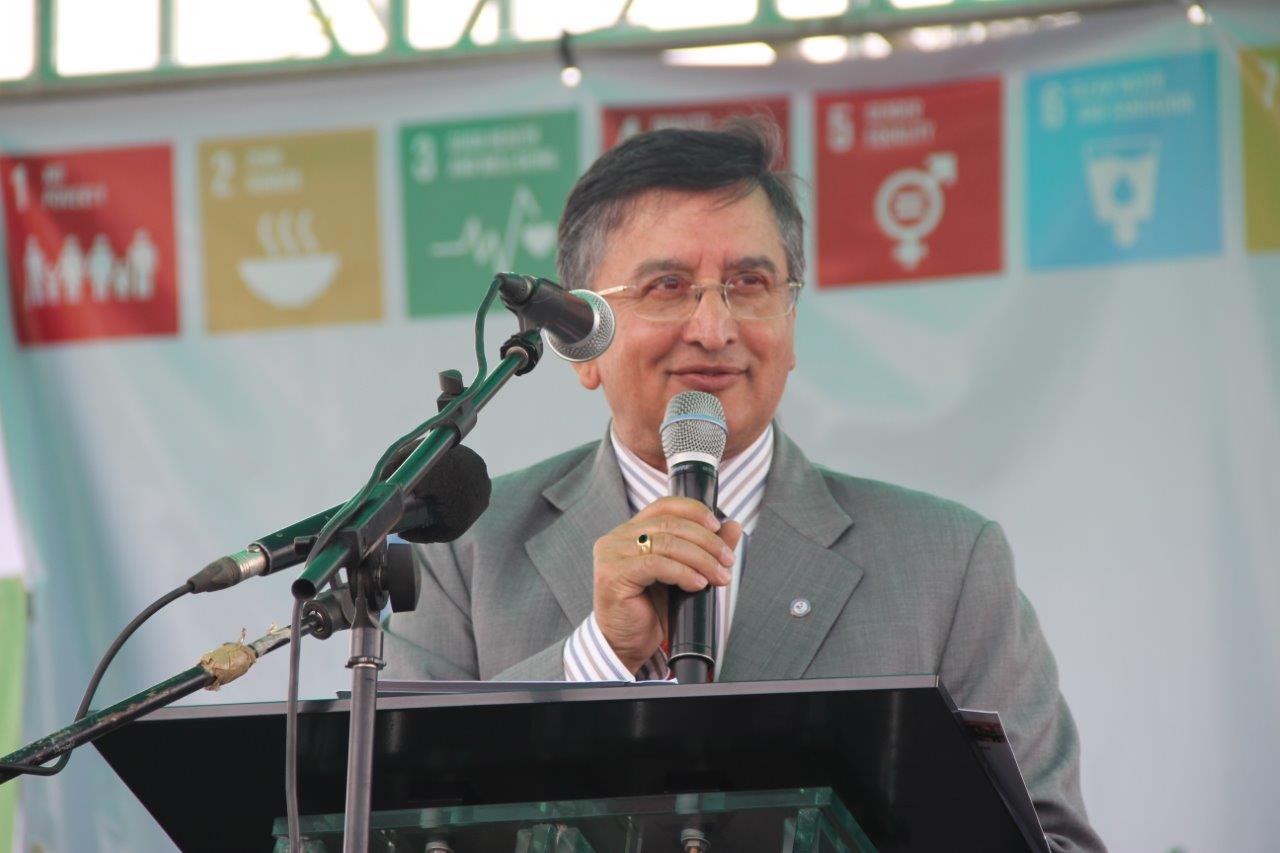By Byron Mutingwende
The empowerment and full participation of women as equal citizens in all spheres of life stimulates the development of societies. This was the general consensus among the Zimbabwe United Nations office, civil society organisations and development partners in their solidarity messages during the commemoration of the International Women’s Day on Wednesday 8 March 2017.
In his keynote address during the commemoration, the United Nations Resident Coordinator to Zimbabwe that was held at the National Gallery, Bishow Parajuli said that gender equality and women’s empowerment was not only a basic human right but also a strategic investment to transform lives of the poor and the downtrodden.
“Imagine uplifting most women who are confined to low income and insecure type of jobs. Imagine how many would have been uplifted from poverty had we ensured equal pay and adjust the income of women who earn 24% less than men for the same job. Imagine, how productive would the world have become, if we only had regularised the estimated 47.9% working women who are trapped the informal sector or precarious condition, which limits their access to social protection,” Parajuli said.
The senior United Nations official said that the 50-50 Representation in parliament as opposed to the paltry 23% of women who are currently represented in Parliament promotes good governance, rule of law and the establishment of pro-poor policies. He paid tribute to the unpaid work that most women, particularly rural women perform in the fields, collecting firewood and fetching water from miles away.
Parajuli said that tackling the aforementioned challenges would undoubtedly unleash the capacity of women and bring about a paradigm shift in the development trajectory many countries including Zimbabwe.
The 2030 agenda for sustainable development and its 17 goals aim to end poverty, hunger, inequality, injustice, environmental degradation in all its forms and manifestations.
According to Parajuli can only be achieved through involving the participation of women and girls in a number of areas. These include the facilitation of women to participate in more productive work at home and in the marketplace as employers, employees and entrepreneurs. This would be matched with the provision of better health, equal opportunity in education, ending of physical and sexual violence against women and girls, coupled with sustainable resource use for present and future generations as women and girls.
He added that ensuring more equal voice and representation in decision-making and resource allocation facilitates in closing gender gaps in public administration, thereby contributing to democratic governance, restoring trust and confidence in public institutions, and accelerating the responsiveness of government policies and programmes.
The Zimbabwe Association of Community Radio Stations (ZACRAS) said that one of the most effective ways of ensuring the empowerment, recognition and inclusion of women is for them to enjoy communication rights where they are free to express themselves while accessing useful and strategic information.
“It is therefore ZACRAS’ view that platforms readily provided by radio, especially Community Radio, should afford women and girls an opportunity to have their voices articulated and amplified. This is moreso noting that Community Radio is not about doing something for women and girls, but about women and girls doing something for themselves through controlling own means of communication,” said Kudzai Kwangwari, the ZACRAS Programmes Manager.
ZACRAS urged the Government of Zimbabwe to licence community radios so that women and girls, particularly in rural communities, have access to communication platforms where they can articulate their development priorities without hindrance.
Crisis in Zimbabwe Coalition (CiZC) said that the growing women’s movement that had helped to build support for women’s rights and participation in the political and economic governance in the country as exemplified by decades of struggles against gender disparity and exclusionary policy frameworks and laws.
CiZC said that despite the existence of a progressive constitution, gender disparity in Zimbabwe continues to undermine the recognition, empowerment and the full participation of women as equal citizens.
They expressed great concern over the sentencing of a pro-democracy activist, Linda Masarira who was sentenced to perform 385 hours of community service at a local clinic. Masarira was accused of participating in the July 6 2016 citizen led protests.
CiZC bemoaned the fact that the celebrate were held while brave women human rights defenders such as Yvonne Musarurwa were locked up at Chikurubi Maximum prison where there are no proper facilities to cater for women prisoners.
“We also note with great concern that we celebrate this day during a period were most women who have been displaced due to Cyclone Dineo. It is our firm belief that poor planning and an absence of disaster management strategies account for the ballooning effects of the floods on women in Masvingo, Matabeleland South and parts of Kadoma and Harare. Subsequently, women and children have become the victims of water-borne diseases like typhoid, especially in the High-density suburbs in Makokoba and Budiriro where councils have failed to provide quality service delivery,” CiZC said.
As Zimbabwe edges towards the 2018 elections , CiZC called upon the government to ensure that women’s empowerment is prioritised and enhanced with regards to women’s participation in electoral processes.
